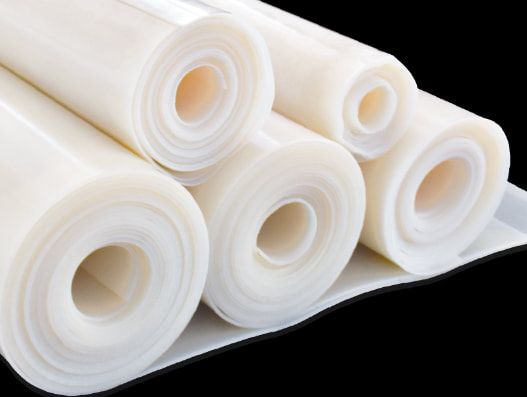What Does Silicone Rubber React With?
Wondering about the compatibility of silicone rubber? Let's delve into what silicone rubber reacts with and explore its myriad applications in real-life scenarios.
Silicone rubber is renowned for its inert nature, exhibiting minimal reactivity with various substances. This inherent inertness stems from its unique molecular structure, primarily composed of silicon, carbon, hydrogen, and oxygen. Unlike traditional rubber, silicone rubber lacks the unsaturated carbon-carbon bonds vulnerable to chemical reactions, rendering it resistant to many corrosive elements.
Chemical Inertness of Silicone Rubber
Silicone rubber's resistance to chemical reactions is a standout feature. It generally remains unaffected by acids, bases, and solvents that might compromise other materials. This inert quality makes silicone rubber a preferred choice in applications where contact with diverse substances is inevitable.
Compatibility with Acids and Bases
Silicone rubber showcases remarkable resistance to both acidic and basic environments. Whether exposed to mild acids or strong bases, the material maintains its integrity. This makes it ideal for applications in laboratories, where exposure to various chemicals is common.
Interaction with Solvents
Unlike traditional rubbers, silicone rubber is not easily swayed by solvents. It stands resilient against the deteriorating effects of many common solvents, making it suitable for applications involving cleaning agents, adhesives, and industrial processes where solvent exposure is prevalent.
Reactivity to Metals and Plastics
Silicone rubber exhibits a low level of reactivity with metals and plastics, contributing to its widespread use in gaskets, seals, and insulating materials. Its compatibility with these materials ensures a secure fit without compromising the structural integrity of the components.
Real-life Applications
The chemical inertness of silicone rubber finds application in various real-life scenarios. In the automotive industry, it is used for gaskets and seals, providing a reliable barrier against the corrosive effects of engine fluids. In the kitchen, silicone rubber utensils resist the corrosive nature of certain food ingredients, ensuring durability and safety.
Medical applications also benefit from silicone rubber's compatibility. It is commonly used in medical tubing and implants due to its inert nature, minimizing the risk of adverse reactions within the human body. Furthermore, in the electronics industry, silicone rubber provides insulation for sensitive components, safeguarding them from external environmental factors.
Limitations and Exceptions
While silicone rubber boasts impressive chemical resistance, it is not entirely immune to every substance. Strongly alkaline substances, such as concentrated sodium or potassium hydroxide, can pose challenges. Additionally, some specialized chemicals designed to break down silicone may impact its integrity.
Preventive Measures
To maximize the benefits of silicone rubber's chemical inertness, users should be aware of its limitations. Selecting the appropriate type of silicone for specific applications and avoiding prolonged exposure to extreme conditions or incompatible substances can help maintain its longevity and performance.
Conclusion
In conclusion, silicone rubber stands out for its minimal reactivity and impressive chemical inertness. Its compatibility with a wide range of substances makes it indispensable in various industries and everyday applications. Understanding its resilience to acids, bases, solvents, and its limited exceptions empowers users to leverage the full potential of this versatile material.




Comments